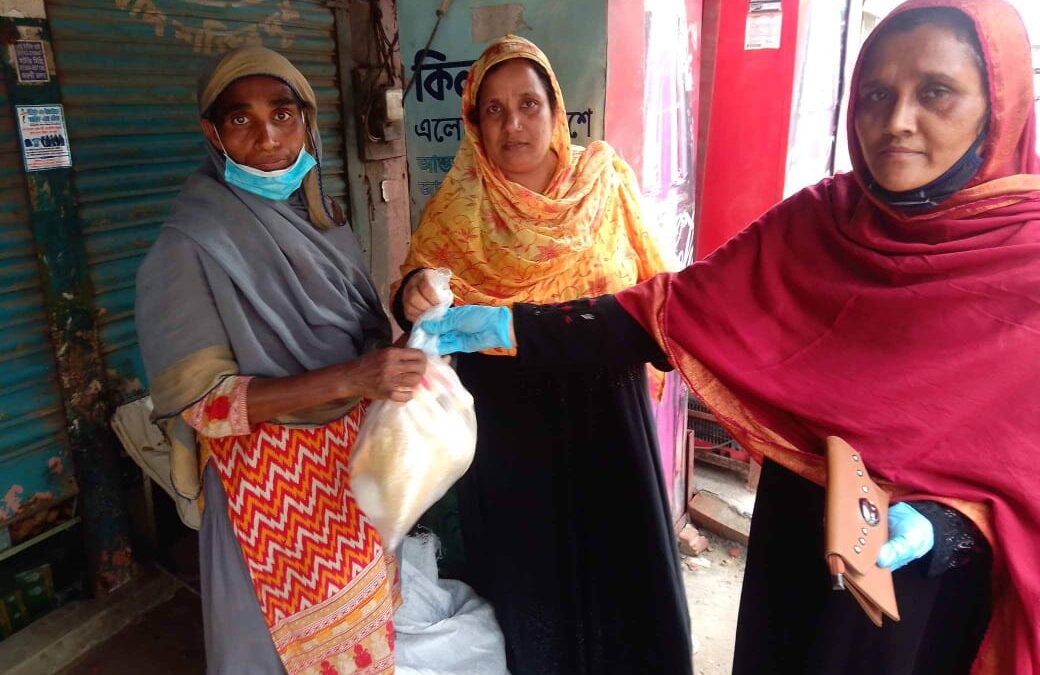
Dec 10, 2020
As garment factories shut down in Bangladesh during the novel coronavirus pandemic, leaving workers without wages or access to support services, unions and Worker Community Associations (WCAs) around the country rapidly shifted to address the crisis, with Worker Community Centers (WCC) serving as a lifeline for workers, their families and their communities.
The community associations and centers are part of an ongoing USAID-funded Solidarity Center Workers’ Empowerment and Participation project (WEP) launched in 2019 to improve working conditions for workers in the ready-made garment and shrimp and fish processing sectors in Bangladesh. The project builds on the strong foundation WEP established between 2015 and 2019.
In July, the Solidarity Center delivered 30,000 COVID-19 awareness leaflets to its partners in Dhaka and nearby Ashulia, Gazipur, Narayanganj and Savar; as well as Chattogram, Jashore and Khulna. The pamphlets, distributed to thousands of workers and community members by WCC coordinators and union federation organizers, highlight key safety measures during the COVID-19 pandemic, such as proper hand washing, social distancing and wearing masks at all times when outside the home.
“It’s important for us to do our part to get accurate information to everyone in the community to help stop the spread of this deadly virus,” says Rita Saha, WCC coordinator in Rupsha. “Our WCC leaders and members have extensive networks, and we love raising awareness and helping our community.”
Ensuring Fair Wages, Decent Working Conditions
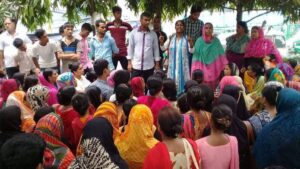
When AFCO garment factory closed during COVID-19, workers received unpaid wages due to their union’s efforts. Credit: Solidarity Center
Even as WCCs and unions distributed resources, including food baskets to families of furloughed garment workers during Ramadan, they carried on the crucial work of ensuring workers receive fair pay during factory shutdowns.
As AFCO Abedin Garments Ltd. got set to permanently close in April without paying workers’ back wages, the Garments Workers Solidarity Federation (GWSF) launched negotiations with management and encouraged the Department of Inspection for Factories and Establishments and the Bangladesh Garment Manufacturers and Exporters Association to intervene. Ultimately, factory management agreed to pay the workers 60 percent of their April salary, one month’s base salary and 60 percent of the base wage for each full year of service. Eligible workers also will receive seven days’ annual leave.
In June, Hop Lun Apparels Ltd., Sammilito Sramik Union (HLALSSU) successfully negotiated a 24-point collective bargaining agreement with factory management covering more than 2,000 workers.
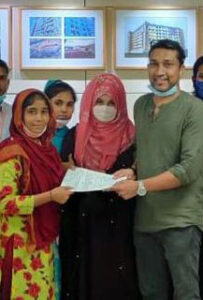
Union members at Hop Lun garment factory negotiated a contract that addresses gender-based violence at work. Credit: Solidarity Center
“When we submitted demands and negotiated with management, we gave special emphasis on the issues of women,” says Aklima, factory union president. “The guarantee of promotion of women to higher posts and the establishment of sexual harassment committee will empower the women and provide safeguards against sexual abuse and harassment in our factory.”
Training, Legal Support
The Workers’ Empowerment and Participation program also carried out leadership training and legal support that included advising more than 450 workers and winning $10,835 in court for 41 workers. Additional accomplishments over the past year include:
- 27,213 workers covered by unions in more than 200 factories
- 104 women elected to leadership positions
- 2,209 new community members actively participating in Worker Community Associations
- 21 new unions and worker-driven organizations in the garment and shrimp processing sectors and 12 new garment unions registered
- 39 worker-leaders trained in achieving gender equality or women’s empowerment at public and private organizations
“The WCC training sessions helped make me more confident and brave, and have helped me understand gender-based violence and harassment,” says one woman garment worker. “This has made it easier for me to handle tough situations at my workplace and in the community.”
Find out more about the Workers Empowerment Project.
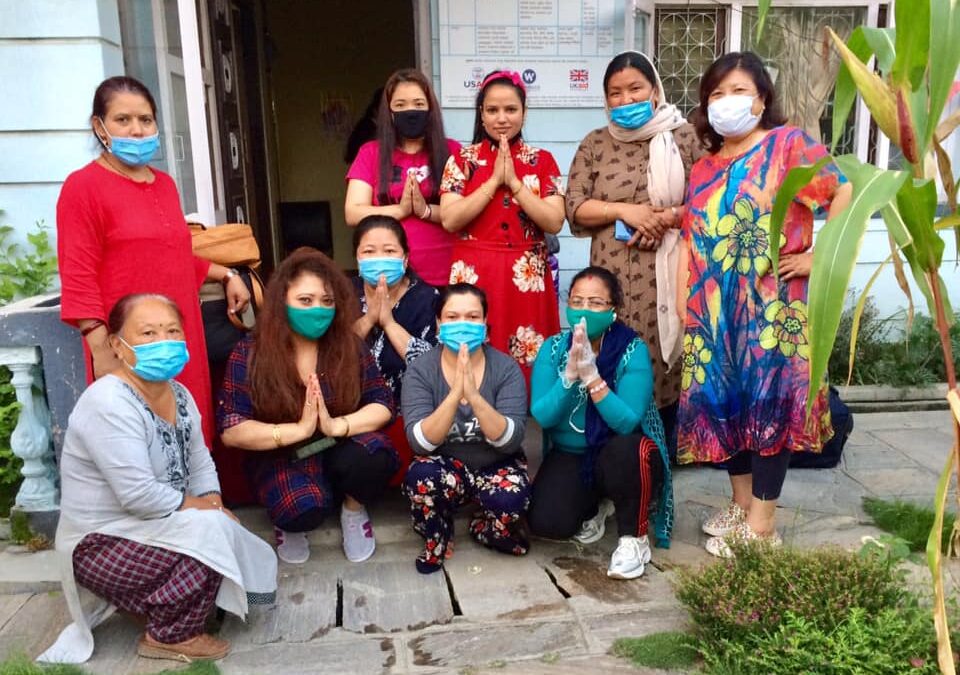
Dec 3, 2020
Globally, marginalized workers have been especially hard hit by the novel coronavirus. Migrant workers in particular have experienced some of the harshest effects of COVID-19 and the related lockdowns, quarantines and travel restrictions.
Yet while the world has recognized “the bravery of frontline workers,” many of whom are migrants, “we must now turn that celebration into something that is meaningful and not just ephemeral,” says United Nations Secretary-General António Guterres.
We must ensure “fair and ethical recruitment, decent work, and access to health care and social protection without discrimination. It is also critical we promote financial inclusion of migrants and their families. We must address discrimination … migrants must not be stigmatized or denied access to medical treatment and other public services.”
Guterres spoke during release of the first UN Secretary General’s report on the Global Compact for Safe, Orderly and Regular Migration. Adopted in December 2018, the Global Compact sets out a cooperative framework for achieving safe, orderly and regular migration within a rights-based framework, and includes a process for implementation and review.
The report, part of the UN review process, focuses extensively on the effects of COVID-19 on the world’s 272 million migrants and the guidance the Global Compact offers in addressing the adverse effects on migrant workers.
Fewer Protections for Migrant Workers Under COVID-19
As borders and worksites were shut early this year, millions of migrant workers were stranded around the world, many trapped in crowded housing with no access to support, including access to food and other life-sustaining provisions. Many migrant workers were systematically denied social safety net protections like unemployment benefits or other forms of income support.
Others were forced to work in unsafe conditions, suffered from wage theft, and retaliation for speaking out about abuse. Origin countries frequently lack adequate health infrastructure, exposing those who returned to a greater risk of contracting COVID-19, or making it difficult for those who were infected to find care. Migrants returning in these conditions are also particularly vulnerable to exploitation, violence, stigma, discrimination and, without jobs, may be unable to support themselves or their families.
Although some governments took positive steps to voluntarily return migrant workers, according to the Global Compact report, many imposed even harsher restrictions. “The pandemic has been used by some [countries] to justify the increased and discriminatory use of immigration detention and to deport migrants without due process,” the report said.
The COVID-19 crisis also has worsened the situation for migrants in countries where they work. In Central Asia, the COVID-19 pandemic “exposed structural and institutional flaws in the way migration is managed in the region,” making conditions for migrant workers dire, according to a shadow report on implementation of the Global Compact in the Central Asian region. The shadow report cites such structural flaws as lack of work contracts that result in wage theft, no regulation of work hours and little or no access to health care or other social and legal protections. It was submitted to the UN by the Solidarity Center, the International Labor Initiatives (ILI), Insan Leilek and the Kazakhstan International Bureau for Human Rights.
The pandemic is especially hard on women, including the 8.5 million migrant women in domestic work, as well as lesbian, gay, bisexual, transgender and intersex migrants, the Global Compact report finds. Even as domestic violence is increasing during the pandemic, resources are being redirected away from sexual and reproductive health services. The Global Compact report points to the need for a gender-responsive, rights-based approach to migration all the more necessary.
Remove Barriers that Repress Migrant Workers’ Full Potential
Rooted in the UN Declaration of Human Rights and internationally agreed standards and frameworks, the Global Compact is grounded in rights-based policies and is a “call to build comprehensive, rights-based policies to ensure that migrants and their communities can thrive,” according to the report.
As such, “legislation should provide for ensuring the rights of migrants in accordance with international human rights standards, including fair and safe working conditions, the right to good rest, the right to access jobs without discriminatory procedures for obtaining the right to work,” according to a shadow report from Russian unions to the UN. “We believe that receiving countries should provide regulatory and visa flexibility for workers, especially during a pandemic.”
Noting the urgency for greater cooperation across borders during the COVID-19 crisis, including the integration of public health concerns into rights-based border governance, the Global Compact report recommends that member countries implement measures and practices in response to COVID-19 that ensure an inclusive public health response to suppress the virus and restart economies, protect migrants’ human rights and ensure the availability of lifesaving humanitarian assistance.
The report’s recommendations support the UN’s June 2020 Policy Brief: COVID-19 and People on the Move, which states that “the best way to recognize the important contribution made by people on the move to our societies during this crisis is to remove barriers that inhibit their full potential.
“This means facilitating the recognition and accreditation of their qualifications, exploring various models of regularization pathways for migrants in irregular situations and reducing transaction costs for remittances.”
Ultimately, as the report states: “The COVID-19 crisis presents an opportunity to reimagine human mobility for the benefit of all while advancing the central commitment of the 2030 Agenda to leave no one behind.” The report is in line with calls from the global labor movement, led by the International Trade Union Confederation, for a new social contract “between workers, government and business, which should include a floor of a universal labor guarantee for all workers.
“Implementing a New Social Contract would make sure that that rights are respected, jobs are decent with minimum living wages and collective bargaining, social protection is universal, due diligence and accountability are driving business operations, and that social dialogue ensures just transition measures for climate and technology.”
In short: A new social contract must include all workers, including migrants.
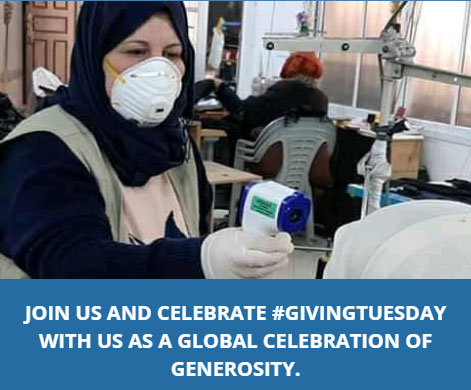
Dec 1, 2020
When the pandemic hit, the Solidarity Center quickly pivoted its programming, drawing on its extensive network in more than 60 countries to rapidly respond to the unprecedented COVID-19 crisis.
- In Kenya, Solidarity Center joined with the Central Organization of Trade Unions (COTU-K) to protect market vendors and reduce community spread of COVID-19 by providing infection control supplies for distribution through worker organizations representing nearly 6,000 informal workers.
- With the Kuwait Trade Union Federation (KTUF), the Solidarity Center connected with migrant worker associations to distribute 100,000 COVID-19 information brochures to 3 million migrant workers in Bengali, French, Hindi, Sinhala Tagalog and addressed unpaid wages and unsafe living arrangements by working with the government officials to solve urgent issues.
- Partners in the Solidarity Center Workers Empowerment and Participation program in Bangladesh distributed 30,000 COVID-19 awareness leaflets to community members and helped reduce rent for garment workers laid off due to COVID-19.
“Whether we were creating innovative organizing ideas or rapidly mobilizing resources for local campaigns and for the sheer survival of unions during this crucial period, we stood strong by our commitment to protect workers and their rights worldwide and strengthen solidarity with our union partners during this time of crushing layoffs and economic devastation,” says Solidarity Center Executive Director Shawna Bader-Blau.
Today, #GivingTuesday, the Solidarity Center is raising $25,000 to support grassroots programs worldwide.
Will you join us to go above and beyond in order to meet this goal? Any gift you make, regardless of the amount, will make a difference through our work.
#GivingTuesday is a day to stand up for what you believe in. It is a day to stand in solidarity with workers and the Solidarity Center’s more than 500 unions and worker rights partners around the world. It’s a day to demonstrate that you care.
“Resilience is part of who we are and always have been,” says Bader-Blau. “Our union partners and workers worldwide have faced unimaginable hardships but have demonstrated perseverance and innovation in many new ways. And we are standing right there with them.”
Donate now!





